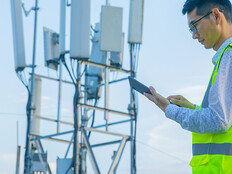Smart City Development In Seattle
Are you wondering if your city should begin dipping into smart city technologies? Jim Loter, the director of digital engagement for the city of Seattle, says that while many challenges remain — and more will arise — there are several benefits to effective smart city initiatives.
Speaking at the Smart Cities Week conference in Washington, D.C., earlier this month, Loter said Seattle has pinpointed six areas of opportunity that smart city development will afford city government and residents alike.
1. Smart City Data Offers Cities Operational Efficiency
Seattle government leadership is currently exploring several use cases via sensor technology that can help the city to redirect existing resources to higher-priority problem areas, said Loter. The good news is that the city’s ability to equip with more sensor technology has increased as the cost of sensors has dropped significantly compared to just a few years ago.
“If the sensor cost $600 five years ago, now it costs $60 with a 15-year battery life that operates on either low-power LAN or standard cellular networks so we don’t have to run fiber to it,” said Loter.
The costs related to acquisition and deployment of sensor technology are dropping alongside the costs that go into streaming the data from the hardware, however, the costs related to transforming that data into actionable information, as well as to take action on that knowledge, are either the same or greater than they were five years ago, Loter said.
“I think that what a lot of the cities do, including Seattle, is to underestimate the fact that it’s great to sensor the built environment; it’s great to sensor the streams of data, but then when you’re confronted with having to actually do anything about that, that can be just as hard as it is if you didn’t have the data,” he said.
For this reason, Loter suggested focusing on using that data to first crack simple problems that can help increase efficiency.
“If you can figure out that these sensors are telling me ‘Oh, these construction sites are the ones that are violating the construction ordinances,’ or ‘These trash cans are the ones that need to be emptied first,’ and you can deploy your existing resources in different ways, that’s probably the easiest and first operational-efficiency … gain,” he said.
2. Tech Deployments Offer Quality-of-Life Improvements
Technology deployments that are centered around designing a better urban experience for residents and visitors, such as smart parking or chatbots that can help to streamline government interactions, can have a direct positive impact on citizens’ lives.
“With public Wi-Fi benefits or … something like helping you find the right parking spaces when you’re going out to dinner, there is direct public benefit,” said Loter.
3. Smart City Data Bolsters Economic Development
Smart city sensors generate an incredible amount of data on resident need and behavior. While there are certainly limitations on what governments can share with businesses, there is an opportunity through open data or other efforts to share information with the aim to improve economic development.
“To the extent that we can monetize the data, we can make that available to small businesses, local startups, entrepreneurs, to actually start to generate something of value to benefit our constituents,” Loter said.
4. New Tech Lets Leaders Revamp Policy
As smart city initiatives offer governments new challenges and opportunities, it can present lawmakers with a chance to take a second look at many of the city policies in place to see if they are still useful.
“Which policies are out of date and can’t really accommodate the new world or the new reality? What should we be looking at? How do we bake privacy, equity and those sorts of issues into our policies?” Loter asked.
5. City and Academic Partnerships Offer Research Opportunities
It’s not just businesses that can benefit from the data that smart tech collects for cities. Academic institutions and organizations can work wonders with the new data the city can provide.
Universities can also be involved in building out the initial stages of a smart city project. In Pittsburgh, for example, Carnegie Mellon University is heavily involved in the city’s partnership with Uber to further autonomous vehicle technologies.
Meanwhile, Seattle is working with a team of electrical engineering graduate students at the University of Washington to design and develop an Internet of Things sensor in a way that it never collects personally identifiable information.
6. Smart Tech Offers Cities New Avenues to Generate Revenue
Smart city data can benefit businesses for economic development and universities in furthering research. City government can also work to generate revenue from many of the sponsorship opportunities or services that smart city tech will enable.
Loter argued that Seattle is leaving millions of dollars on the table by not deploying public Wi-Fi under a business model that is funded by advertising revenue. The city is prohibited from doing so by public ordinance.
“We’re missing out on that revenue,” he said. “What’s more important to us as a city? Keeping the Calvin Klein underwear ads off of the streets or actually generating a new revenue stream and providing a public benefit?”









